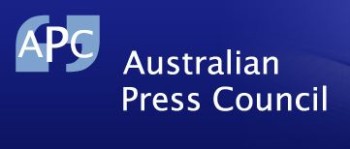
(Credit: Australian Press Council)
The chairman of an Australian government inquiry into print media standards suggested that the council start to address all media complaints and that the press council fine journalists and news outlets if they break journalism standards, the Sydney Morning Herald reported.
The Press Council’s chairperson Julian Disney supported the idea of chairman Ray Finkelstein and commented that the idea could be executed if the press council created a “referral panel…appointed by the council but independent of it” to handle “serious breaches of council standards.”
However, former Press Council chairman David Flint criticized Finkelstein’s idea, because he said it would amount to making the council like a court, according to the Sydney Morning Herald.
Disney also called for government funding of the council, which he defended against charges of censorship, Sky News reported. Disney recommended expanding the press council to a “super council” to address complaints against all media. The council may even have a an “independent reviewer” to review the council’s work.
According to a separate Sydney Morning Herald report, the inquiry into media wasn’t prompted by any one incident in Australia’s media, so the focus of the inquiry is “hazy.” As such, Finkelstein’s focus has been on beefing up the press council’s powers.
The Australian reported that the inquiry began Nov. 8 and that Finkelstein said “he has received no instruction from the government.” StinkyJournalism wrote in September when the Australian government announced the inquiry. This summer, the government considered calls for new media laws in light of the UK phone hacking scandal and News Corp’s 70% ownership of Australian print media. News Limited (the name of News Corp’s Australian branch) CEO John Hartigan denied that the company’s Australian journalists broke journalism ethics.
The Australian Press Council started a three-year standards project this year in which the council will meet with the public and issue guidance on ethics and reporting issues. See our report on this project here.
StinkyJournalism wrote to the press council’s standards director Derek Wilding to learn more about the proposals. Wilding noted that the Australian Press Council published its submissions to the inquiry led by Finkelstein and the Convergence Review on its website here and here.
Wilding explained that expanding the council to monitor all media standards and complaints is part of the Convergence Review submission. “A key feature of the proposal is that there would be an independent council, rather than a statutory agency, which performed this work,” Wilding wrote. “As indicated in the submission (and reiterated by Professor Disney at the hearings last week), this is a longer-term proposal. For now, the Press Council is concentrating on improving the structure and performance of the Council in relation to print and online media.”
According to the council’s submission to the Convergence Review, the council gets “about 450 complaints each year.” The council noted that the complaints process can last between an average of a month or three months (“if they proceed to adjudication). According to the council’s submission, part of the reason it wants to include internet news in its jurisdiction is because many complaints include “an online or digital component.” Also of concern is how to handle “possible regulatory overlap.” As the council explained, an example would be if a TV news outlet’s content “is published in identical form in a newspaper website.” In that case, there could be confusion between the broadcast regulator and the council.
Concerning the possibility of the council fining journalists, he noted that the council “warns against the potentially legalistic and time-consuming effect” of fining in its submission to the Finkelstein-led inquiry. As such, the council recommended that the council establish “a referrals panel” to review fining and “breaches that are exceptionally grave or together with earlier breaches, constitute persistent non-compliance with Council adjudications.”
However, Wilding noted that the possible fining is “raised as an option only and is not put forward as a recommendation of the Press Council.”
Hat Tip: Editor and Publisher







Comments Terms and Conditions